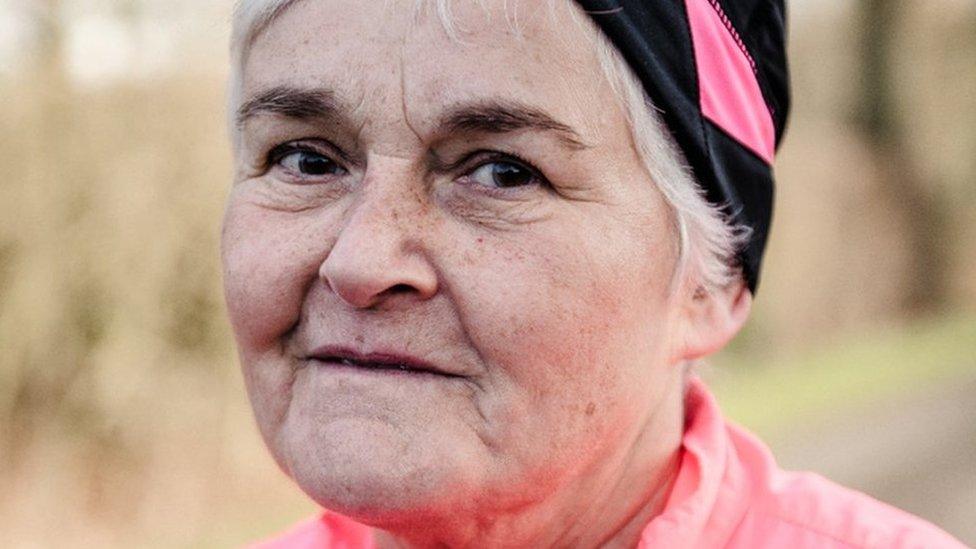Alzheimer's disease study looks for high risk cases
- Published
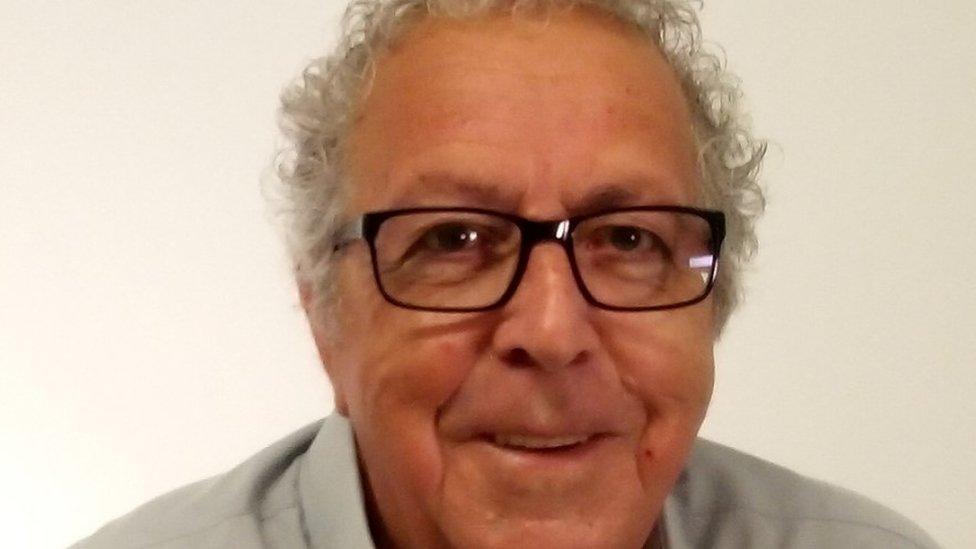
Ray Beckingham volunteered after several of his friends developed dementia
Volunteers for a clinical study into Alzheimer's disease could be told they have a 50% increased chance of developing the disease because of a gene they carry.
The Generation Program involves eight-year trials of two drugs that could delay or prevent symptoms.
But only people found to be at higher risk can take part.
Ray Beckingham, 74, is among them and said he felt the knowledge would help him prepare for the future.
Neither of his parents had Alzheimer's.
Mr Beckingham, a retired policeman from Weston-super-Mare, carries two copies of the APOE4 gene, which is the major genetic risk factor for Alzheimer's disease.
'Better to know'
People with two copies - one from each parent - are at particularly high risk. Only 2% of the world's population is affected this way.
It also means their children will have inherited at least one copy.
Mr Beckingham has a son and daughter and has told them about his results. He said they accepted it and supported his decision to take part in the study.
"You can't do anything about it, so you just carry on with life as normal," he said. "It's better to know so you can prepare for the future."
Mr Beckingham is taking part in a trial at Southmead Hospital in Bristol, one of 250 centres involved across the world.
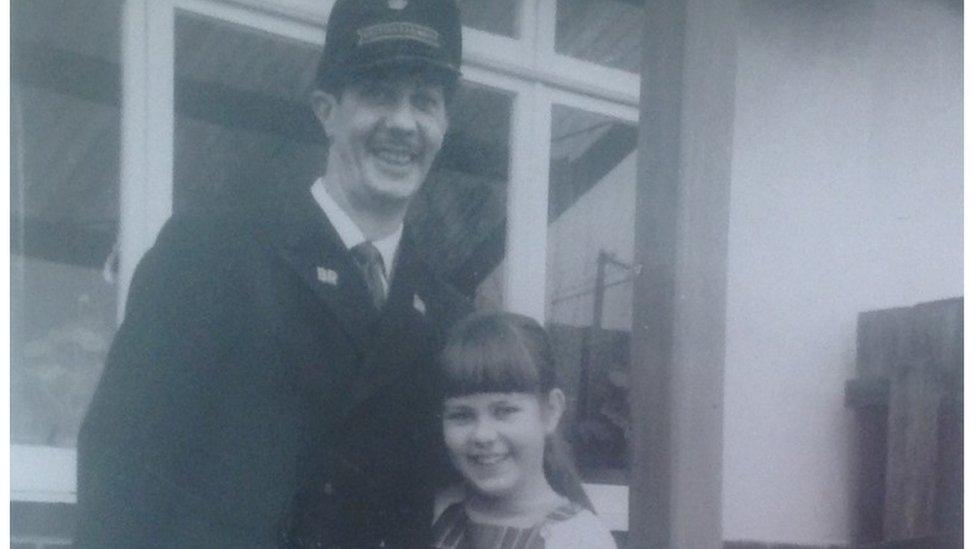
Vivien Stiles's father Dennis Bentall developed vascular dementia
Vivien Stiles, who is 61 and from Bristol, said she volunteered after seeing first-hand how dementia could devastate families. She worked as a nurse in a dementia unit and her father Dennis Bentall developed vascular dementia.
"It changed his personality so much. I always felt he looked the same, he sounded the same, but he was so different. He was a very gentle, loving man and he became very frustrated and angry at the disease. At the end he even forgot my name which was really devastating, although he still knew I was his little girl."
Ms Stiles was found to carry one copy of the gene, which increases her risk by 15-20%, but has not been included in the study.
"A lot of people have said to me that they felt that they wouldn't want to know, but I think knowledge is power. Without people coming forward researchers will never be able to find a cure," she said.
Dr Victoria Sanderson, who is in charge of the study at Southmead Hospital, said volunteers received psychological screening and genetic counselling before finding out their result. They were also offered follow-up phone calls for more support.
"Just like with other diseases, like cancer and diabetes, we're really trying to shift the diagnosis and treatment to an earlier stage," she said.
"With this trial we're trying to identify people who we think are at higher risk of developing Alzheimer's, external but have not yet got any symptoms. We want to see if we can delay or prevent those symptoms occurring."
More details on the trial can be obtained by filling out this form, external.
- Published6 March 2018
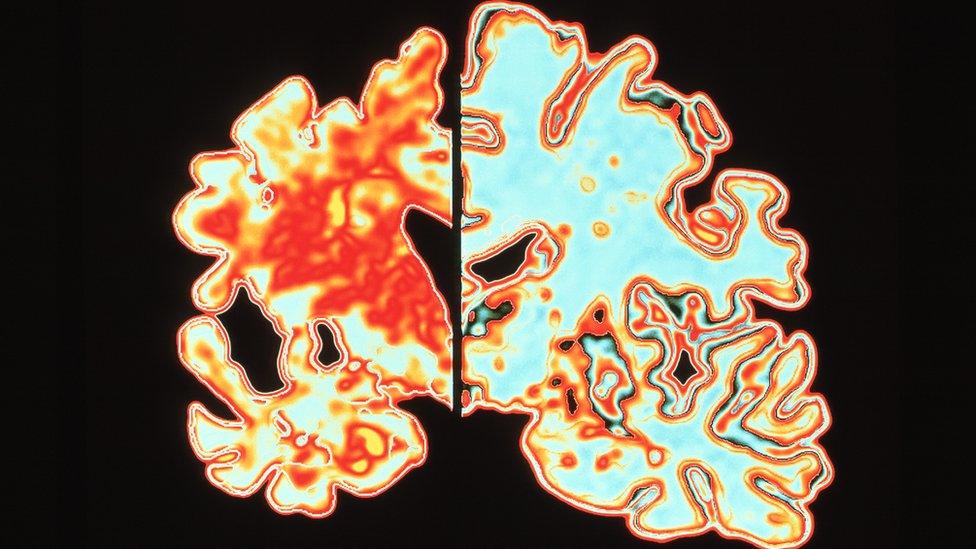
- Published4 April 2019
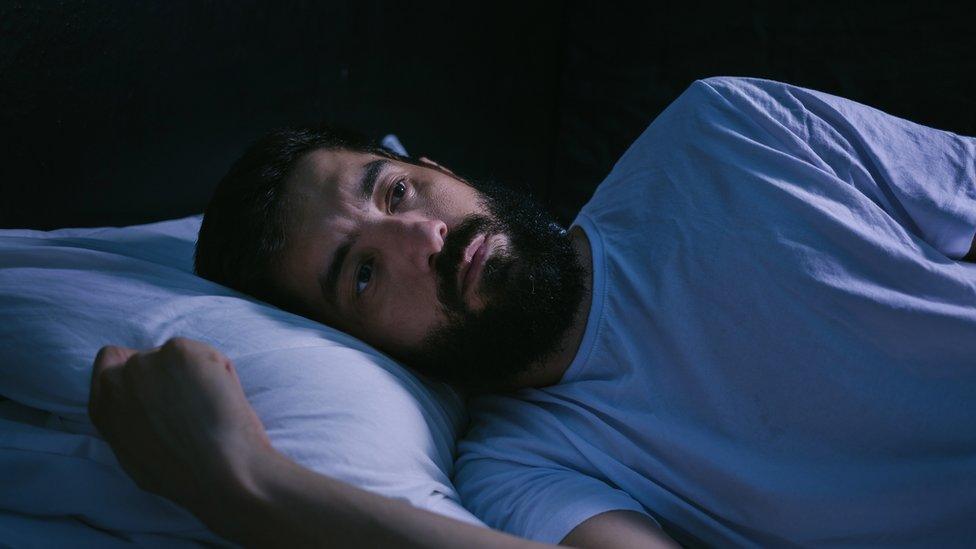
- Published30 April 2019
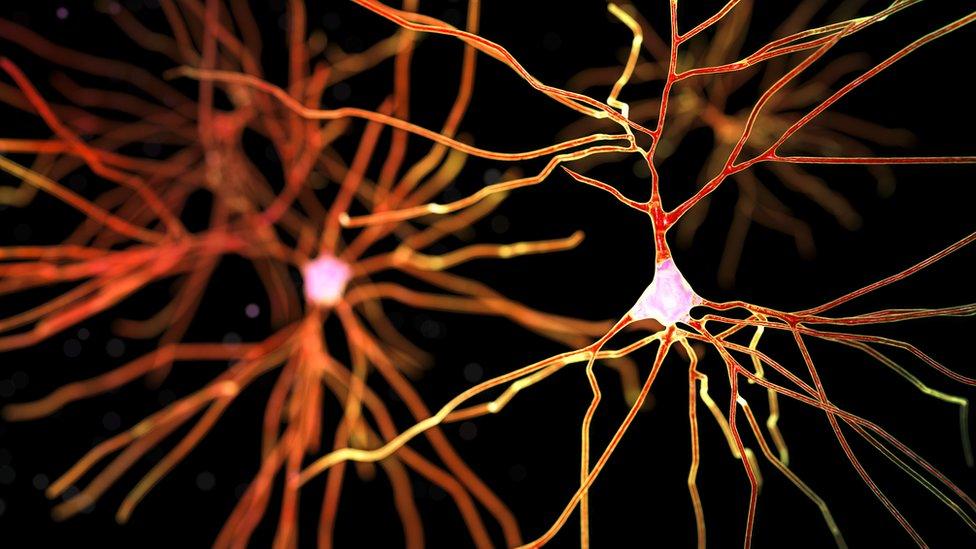
- Published6 February 2019
